IRGC Commander Downplays Conflict With Taliban
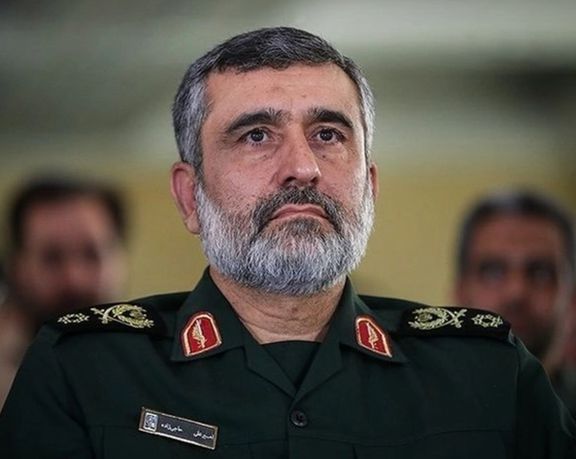
Following the killing of at least three during clashes with Taliban forces, the commander of the IRGC Air Force said Monday that “such conflicts should not be overstated.”

Following the killing of at least three during clashes with Taliban forces, the commander of the IRGC Air Force said Monday that “such conflicts should not be overstated.”
Amir Ali Hajizadeh said of Saturday's clash: “Some people are to turn these conflicts into a war, but such a war will never happen."
Two Iranian border guards and one Taliban fighter were killed after shooting broke out near a border post. It was not immediately clear what had caused the incident, in which several people were also injured, but it came amid tensions over water rights.
Iran has accused Afghanistan's Taliban of violating a 1973 treaty by restricting the flow of water from the Helmand River to Iran's parched eastern regions, an accusation denied by the Taliban.
Hajizadeh admitted only that “there have been some incidents on the border that are being managed by the forces there, and we should not add fuel to the fire," in a bid to downplay the escalation.
Regime voices including Esmail Kosari, a member of Iranian Parliament’s National Security Commission, have also massively understated the killing and wounding of Iranian border guards saying it was a "disagreement and fighting between children of the same household", suggesting the regime is working hard to ensure no further escalation.
His statements angered many Iranians saying there is no similarity and brotherhood between Iranians and the Taliban militants who have been responsible for years of brutal atrocities against the Afghan people.
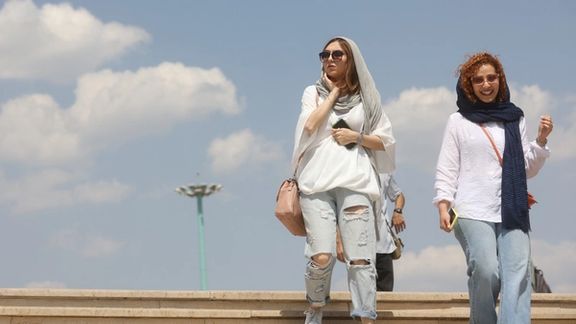
Heated debates over a new bill about how to deal with women who refuse to observe compulsory hijab continues inside and outside the Iranian parliament.
The bill is not forceful enough for hardliners, because it bans religious conservatives from confronting women who don’t cover their heads. The bill mainly relies on cash fines to force women to wear the hijab.
Part of the regime in Tehran fears strict and forceful enforcement of hijab might trigger another round of protests, similar to last September when a 22-year-old woman died after her injuries in ‘morality police’ custody.
While some hardliners demand harsh treatment of bad-hijab women, Vice President for Legal Affairs Mohammad Dehghan told reporters in Tehran on Monday: "We wish to avoid making hijab a pretext for further deepening divides and disputes in the country." He added: "We are thinking of using the issue as a basis to bring about national solidarity."
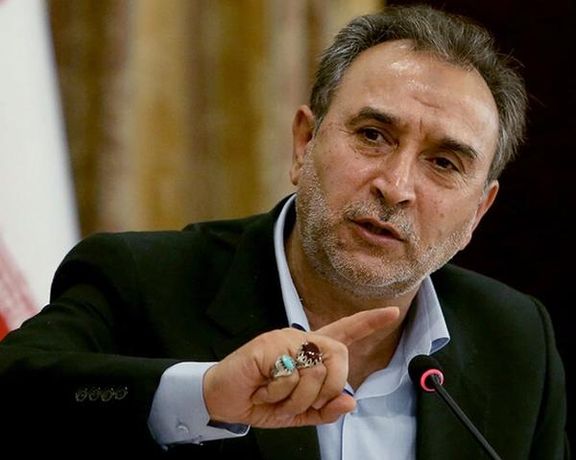
Dehghan said that the current bill, which has been criticized by some hardliners as being focused on levying monetary penalties rather than confronting women in the streets, has been prepared by the Judiciary and the administration has simply tried not to change it dramatically.
Referring to the criticisms, Dehghan said, "After the recent protests which were organized by foreigners, the issue of hijab must be dealt with a more comprehensive approach." He probably meant that the government needs to take a pragmatic stance to avoid further unrest. He reiterated that the government believes in "a cultural approach" to the issue.
Dehghan, however, made it clear that the government agrees that celebrities who promote the idea of "hijablessness" should be dealt with legal prosecution. He added that the security forces will deal with those who promote anti-hijab ideas based on foreign views. In other cases, law enforcement will simply advise women to observe the hijab. If they accept the guidance, then that is all, but if they insist to defy the hijab, they will be fined.
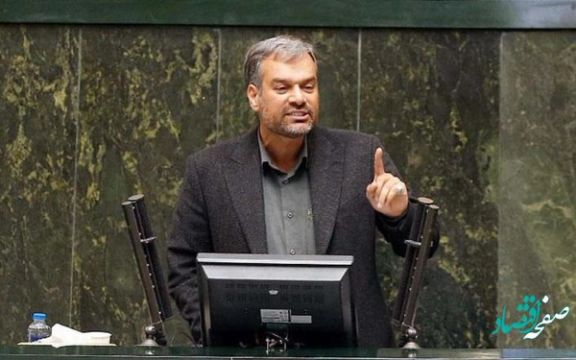
One of the staunch critics of the hijab bill happens to be President Ebrahim Raisi's father-in-law Ahmad Alamolhoda, the Friday prayers Imam of Mashhad. Lawmaker Jalal Rashidi Koochi quipped that Raisi should take back the hijab bill from the Majles and hand it over to Alamolhoda for further review before giving it back to the parliament.
Koochi charged that "the bill in its current form is all about arresting and fining women. If Alamolhoda wishes to make any change in the bill, he should not criticize the parliament as he did. He should instead address his complaints to his son-in-law Raisi." Alamolhoda had earlier called on the Majles not to ratify the bill as it will promote lack of hijab.
Koochi however criticized the bill for lacking any provision that would encourage women to observe the hijab. "The bill is mainly about if you do this, you have to pay this amount," Kooch said.
During the past week, many conservatives and hardliners harshly criticized the bill. The hardline editor of Kayhan daily Hossein Shariatmadari said "It is funny that the police is only allowed to send text messages to women telling them that they have been seen without headscarf. This bill cannot enforce the hijab."
Former Deputy Judiciary Chief Mohammad Javad Larijani said: "If someone sees a naked woman standing behind the window, he should have the right to call the police." Meanwhile, responding to Iranian politicians who have called for holding a referendum about hijab, Larijani said that this will violate the Constitution of the Islamic Republic.
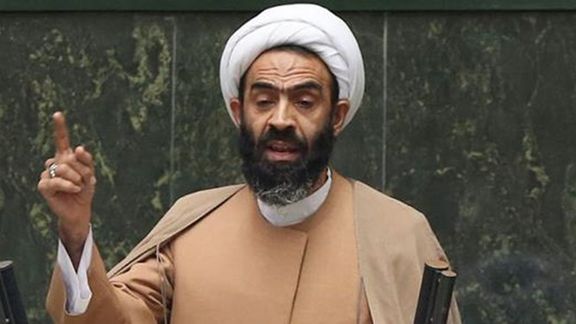
Lawmaker Mohammad-Taghi Naghdali, the secretary of the parliament's legal committee, in a video that quickly went viral suggested harsh punishments including lashes and deprivation from social rights as well as heavy fines for women who refuse to wear the compulsory hijab.
Calls for harsher punishments than what is called for in the hijab bill continue by seminary clerics, Friday Prayer Imams and other hardliners in various parts of the country, while the number of women defying hijab has been on the rise in the streets during the past 8 months since the start of Women, Life, Freedom movement in Iran, despite the official ban on the entry of hijabless women to academic centers and administrative buildings and even subway stations.
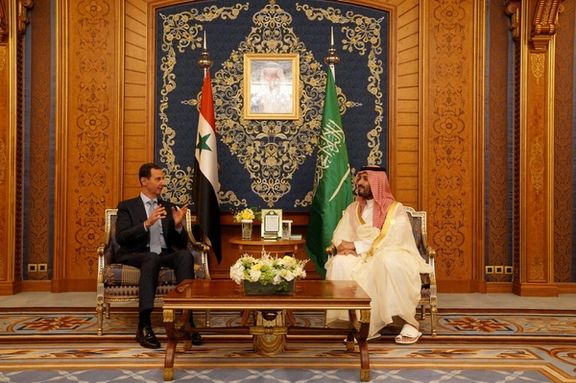
The United States Tuesday imposed punitive measures on two Syrian money services it said help the government maintain access to the international financial system in violation of sanctions.
This was Washington's first action targeting Syria since its readmittance to the Arab League.
The US Treasury Department in a statement accused the two money service businesses, Al-Fadel Exchange and Al-Adham Exchange Company, of helping President Bashar al-Assad's government and its allies, Hezbollah and Iran's Quds Force, an arm of its Revolutionary Guards (IRGC).
The sanctions, imposed under the Caesar Act that also levied a tough round of sanctions on Syria in 2020, come after Arab states earlier this month turned the page on years of confrontation with Assad and readmitted Syria to the Arab League, a milestone in his regional rehabilitation even as the West continues to shun him after years of civil war.
The move came as what seemed to be policy change by Saudi Arabia as it restored diplomatic ties with Iran in March after seven years tensions.
Regional countries - including Saudi Arabia, Qatar and others - had for years supported anti-Assad rebels, but Syria's army - backed by Iran, Russia and allied paramilitary groups - regained most of the country. The icy ties with Assad began to thaw more quickly after devastating earthquakes in Syria and Turkey in February.
The United States has said it will not normalize ties with Assad and has said Syria did not merit readmission into the Arab League.
With reporting by Reuters
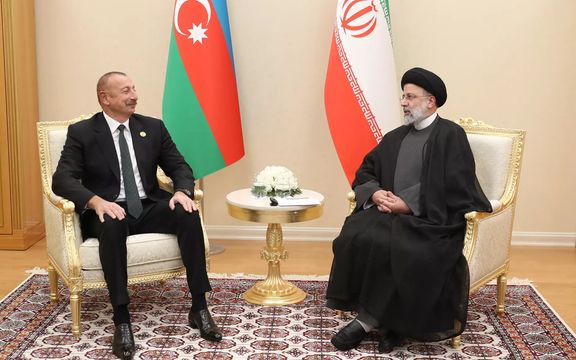
A report, claimed by an opposition group to have been hacked from the Iranian presidency servers, advises the government to redefine its relations with Azerbaijan.
“The government of Azerbaijan has misunderstood the self-restraint and good-neighborliness policies of the Islamic Republic of Iran as its weakness and inferred out country’s determination to avoid conflict with itself,” the report released by MEK-affiliated Telegram account GhyamSarnegouni (Uprising till Overthrow) Monday says.
The group released a trove of secret and top-secret document on Monday that it said were obtained by hacking the government’s servers.
Describing Baku’s actions as “serious threats,” the report provides a summary of recent developments in bilateral relations and a summary of Azerbaijan’s relations with other regional players, Turkey and Israel, in the context of its relations with the Islamic Republic of Iran and says failing to redefine relations will lead to “increased hostility” from Azerbaijan.
“Undoubtedly, the Zionist regime will be the principal beneficiary of heightened tensions between the two sides,” the report says.
The report, which MEK claims was among thousands of other documents it acquired, was apparently made by the foreign intelligence and security department of the ministry. The undated report, possibly a draft, is marked as “very confidential” but does not bear a reference number or signature.
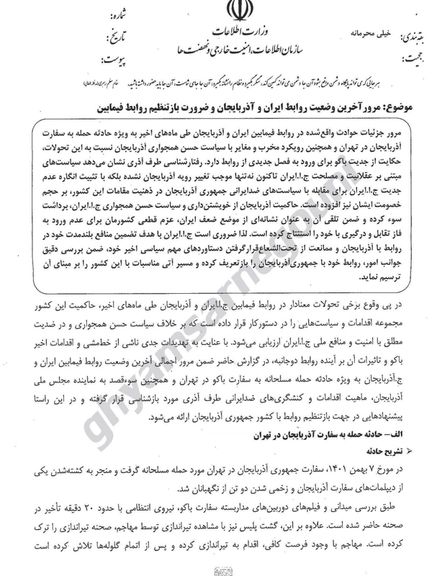
An official of the presidential office, Mohammad-Mehdi Rahimi, claimed Monday afternoon that the presidency website had only temporarily been deactivated to carry out site security maintenance for a new version launched last week.
Tensions have been high between Iran and Azerbaijan since November 2022 when both sides accused each other of engaging in terrorism and espionage in the other’s territory.
Iran has suggested Azerbaijani involvement in the October 26 attack in Shiraz claimed by the Islamic State group (Isis-Daesh) and, also in the report accuses Baku of harboring Israeli intelligence and military elements that plan to use its territory in a possible attack against Iran’s nuclear facilities.
The two countries in early May expelled each other’s diplomats after incidents that Baku also dubbed as "terrorist attacks". These included a gunman’s attack on Azerbaijani diplomatic mission in Tehran in January after which Baku shut down the embassy and an attack on Azerbaijani lawmaker Fazil Mustafa in March, who is an outspoken critic of the Islamic Republic.
Ethnic and religious issues complicate relations between Tehran and Baku and both parties have been using these factors against each other.
Around a quarter of Iran’s population is Turki-speaking Azari, with analysts and activists disagreeing over the closeness of their cultural-linguistic links to their neighbors to the north. Iran fears separatism in its northwestern regions encouraged by Azerbaijan.
On the other hand, Azerbaijan has a large Shiite population that is susceptible to agitation by the Islamic Republic, which considers itself the leader of the Shiite world. Supreme Leader Ali Khamenei is often referred to as the "leader of world Muslims".
The Albania-based opposition group claimed it had breached 120 servers of the presidential office and accessed internal communications and minutes of meetings as well as President Ebrahim Raisi’s online conference platforms and about 1,300 computers inside the office.
Hackers posted images of MEK leaders, Maryam Rajavi and her husband Masoud who has not been seen in public since 2003, and defaced pictures of Supreme Leader Ali Khamenei and President Ebrahim Raisi on the compromised websites.
Without any details, some Iranian news websites reported -- a few hours after the MEK’s announcement Monday that they had hacked the website of the presidency – that the website could not be reached.
In early May the group released hundreds of identification documents, minutes of meetings, copies of correspondence, phone numbers of foreign ministry officials, and the names of 11,000 employees.
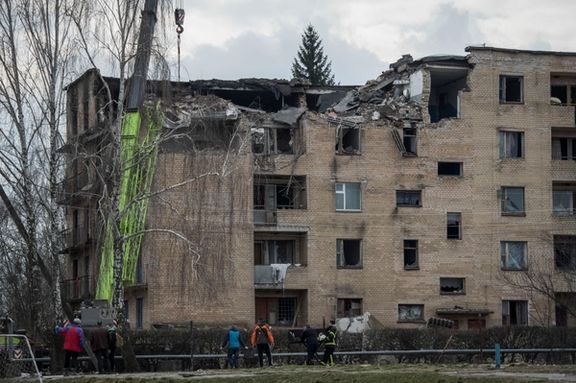
The Ukrainian Parliament approved the country’s National Security and Defense Council's decision to impose sanctions on Iran.
A massive 328 lawmakers voted in favor of the bill on Monday to endorse the decision to impose sanctions on Iran for 50 years for allegedly supplying Russia with weapons during its ongoing invasion.
"The resolution synchronizes Ukrainian sanctions with the actions of the entire civilized world on the path to the complete isolation of Iran," the parliament’s statement said.
Among the sanctions are a ban on trade, the transit of Iranian resources, flights, and transportation within Ukraine, according to Ukrainian media.
Additionally, any investment in Iran and the transfer of technologies and intellectual property rights by its residents will be banned.
Iranians will also be prohibited from using electronic means to conduct payments, while the Ukrainian National Bank will not be permitted to register international payment systems operated by Iran.
On Sunday, Ukraine's President Volodymyr Zelensky proposed a law seeking sanctions against Iran for 50 years after Tehran supplied Moscow with munitions and drones. Three days earlier he urged Iranians not to cooperate with Russia.
Iran has supplied hundreds of Kamikaze drones to Russia that have been used to target mainly Ukrainian infrastructure and civilians since September 2022. Tehran has denied that it has sent any drones to Moscow since the invasion of Ukraine began in February 2022, but Kyiv has presented overwhelming material evidence showing Russia has used Iranian-made Shahed drones.
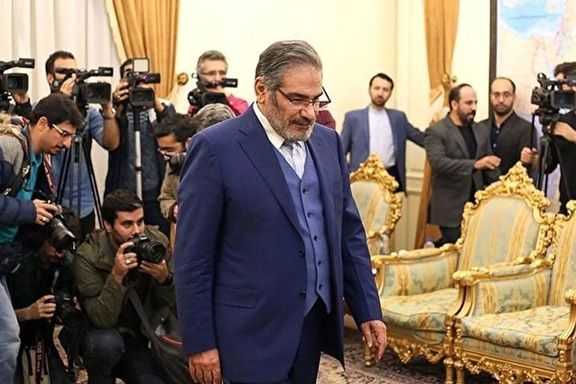
The removal of Iran’s top security official Ali Shamkhani came after he requested former President Mohammad Khatami to officiate his daughter’s wedding ceremony, says the UK-based Amwaj media.
One political insider on condition of anonymity told the website Monday that Shamkhani's political undoing was triggered after his daughter’s wedding.
“According to the source, Shamkhani’s daughter had implored him to extend a request for ex-president Khatami—a figure reviled by conservatives to the extent that his image is banned from state television—to officiate her nuptial ceremony.”
Despite serving as Khatami's defense minister, Shamkhani has increasingly moved to the right in the political spectrum since the nuclear deal negotiations in 2015.
In Iran, prominent politicians, especially clerics like Khatami, are often requested to officiate weddings by couples.
Initially hesitant, Shamkhani reluctantly consented to his daughter's request and called Khatami to invite him to preside over the ceremony, the source explained.
Khatami is said to have agreed to the request. However, due to unforeseen circumstances, he was prevented from attending the ceremony by the security services.
The political insider told Amwaj media that Khamenei was riled by this development and thus effectuated Shamkhani's removal as a result.
Iran's Security Chief Ali Shamkhani was replaced by Ali Akbar Ahmadian, an IRGC chief of the Joint Staff earlier this month.
Shamkhani served as the secretary of Iran’s Supreme National Security Council (SNSC) for almost a decade